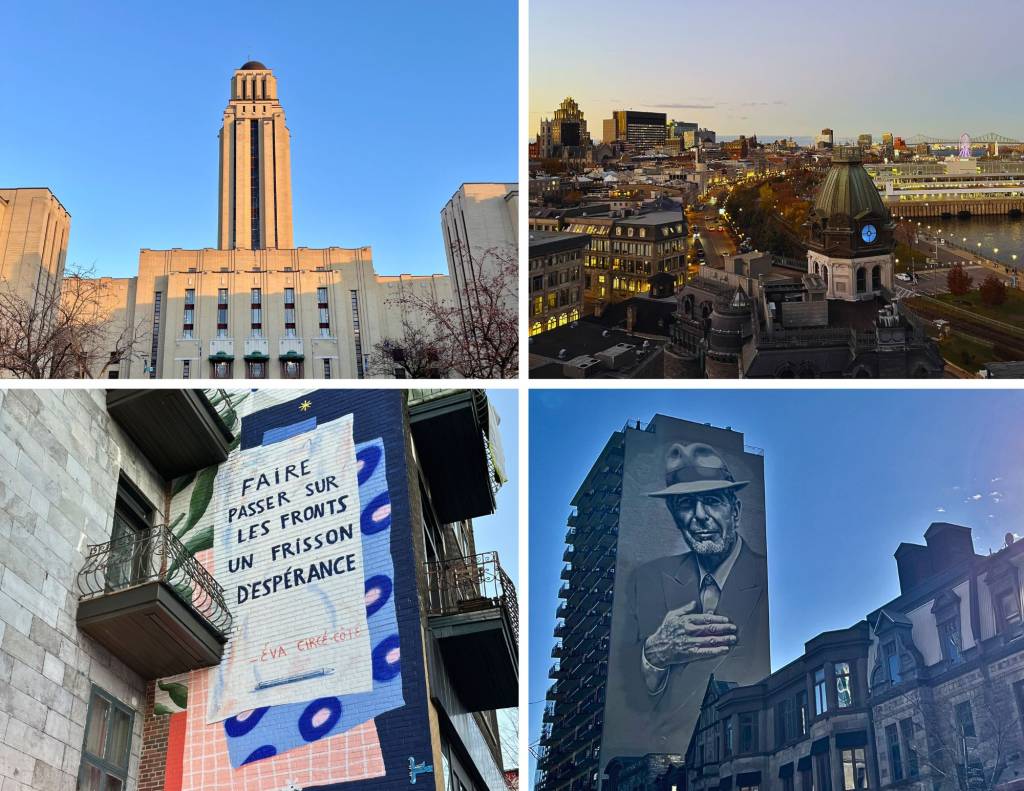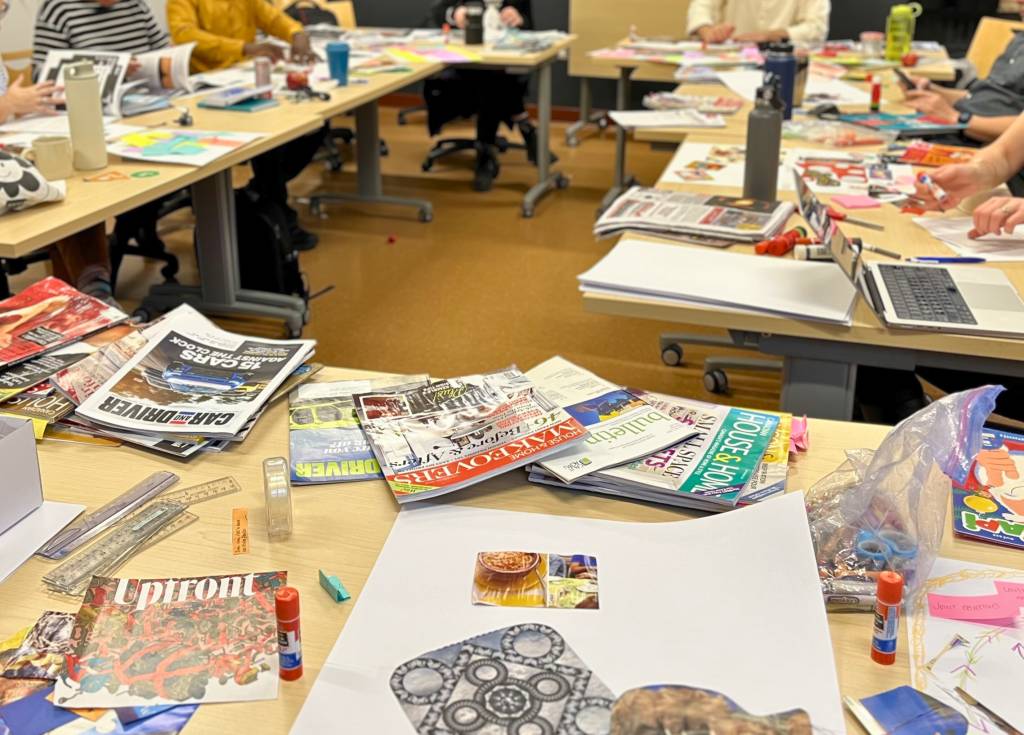After exploring the academic world through conferences, I felt ready to embark on a longer research journey. By November 2024, I was about midway through my dissertation and felt l had something to contribute. At the same time, I was standing at a crossroads; the first two articles of my dissertation were under review, and it was time to plan the third one. Hence, it was the perfect time for a four-week journey of research inspiration.

A new take on a familiar destination
Going to Montreal felt like returning home after a long time. Wandering through the diverse neighbourhoods, admiring the beautiful murals, hiking up Mount Royal and reconnecting with old friends was nostalgic, as it brought back wonderful memories of my exchange year in Montreal during my master’s programme. However, this time the university was new to me, and I was curious to explore new aspects of this large and vibrant city.
Université de Montréal (UdeM) has a communication department with researchers and students from all across the francophone world. The department consists of several labs, which serve as working and meeting spaces for various research groups headed by different professors. My home base was the Engaged Research Lab (Lab engagé), led by my host, Associate Professor Stephanie Fox, and Assistant Professor Pascale Caidor. Most of the time, the lab served as a working space for PhD students, including myself. I was warmly welcomed and introduced to other young scholars with such intriguing ideas for research.
During my visit, I had the opportunity to attend one of the informal lab lunch meetings between professors, PhD students and master’s students. After introducing our research interests, we discussed issues and experiences of gathering data and working with the research community in engaged research. What a nice way to discuss puzzling research themes and cultivate a sense of community and collegiality already from the master’s level up!

Crafting research ideas
The path of a PhD student is somewhat different across the Atlantic. In UdeM, PhD students spend the first two years taking classes and must pass a doctoral exam after their first year before beginning to plan their research projects in a year-long Doctoral Forum. When we apply for PhD positions in Finland, it is akin to starting from the second year of the Canadian system. I think both systems have their pros and cons. Starting a PhD in Finland can feel like diving in at the deep end, but the research idea is already shaped and tested at the entrance level, providing a clear initial direction for the PhD path. Much like an apprenticeship, you learn as you go. In Canada, students gain more knowledge and skills before delving deeper into their own research; however, if the future research subject is unclear, it might create bumps in the road during the PhD process.
I was invited to take part in a Doctoral Forum seminar with second-year PhD students, where we outlined our research plans by creating a vision board. Approaching academic research with scissors and glue was a refreshing point of view and a fun way to get the research ideas flowing! The method was used as an aid to find a research topic, but I think it could as easily work as a tool to draft the integrated chapter of an article-based dissertation. I intend to give this method another go when drafting the conclusions of my dissertation.
Language lessons and seeds of future collaboration
My visit culminated in a presentation held at an Ourepo seminar (Ouvroir de recherches potentielles / Workshop of potential research), organised by Professor François Cooren. I received insightful feedback and brilliant questions, which raised important points concerning, for example, the central concepts I use in my research. A great exercise for anyone looking to clarify their research: try to translate and explain the central concepts in another language. As it turns out, one of my central research concepts has slightly different connotations in French, which caused some confusion at first. However, I learned a thought-provoking lesson through this translation mishap, prompting me to critically consider the original wording of the concept.
All in all, the greatest gain from my research visit was the people I met, the new networks I formed and the conversations I had. The most inspiring talks were with like-minded PhD students with similar research interests, and we planted some seeds for future collaboration. As I bade Montreal au revoir, it was not with the intent of saying goodbye, but with the literal meaning of the phrase – until we see each other again.
Thank you to the Communication Sciences Unit and the C.V. Åkerlund Foundation for funding the visit, to my supervisor Leena Mikkola for the encouragement and for introducing me to Stephanie, and to Stephanie for making it all possible!
Karoliina Karppinen’s research visit was funded by the C.V. Åkerlund Foundation through the Communication Sciences Unit at Tampere University. In her dissertation, Karppinen studies interprofessional collaboration and team culture building in health and social care.
